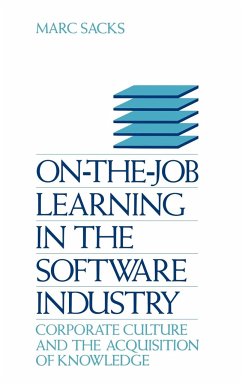Developments in industry in recent years have made employee learning a critical factor in organizations' success. The ever-faster pace of technological development and the variety of tasks that business professionals must perform mean that on-the-job learning is a constant, too quick and vital to be left to training departments. And yet, management knows too little about how workers learn on the job and does not give sufficient time and effort to understanding this process. As learning is largely left to chance, it is amazing that it happens at all, and well enough to enable workers to be productive and not to destroy each other's work. This book explores the daily work lives and learning experiences of programmers and other professionals in the computer-software industry. The book focuses on the staff of one small software firm, allowing workers to tell their own stories, describing their work and their use of all the resources available to them in learning the complex systems they are required to develop and maintain. Based in qualitative sociological method, it is an ethnography of a business setting as well as a study of learning. After describing the professional world in which programmers work, the book introduces the company to be discussed and the backgrounds of the participants in the study. Then, proceeding from the environment to the systems to be learned, the author schematizes all of the resources professionals use on the job--their experiences and thought processes, documentation, their colleagues, the computer, and the software system itself--as learning tools. All of this material is then related to academic models of learning style, which are mostly found not to be very relevant, as they are not grounded in the life experiences of workers. The author advocates that professionals' learning be modeled in context, that training be developed from experience rather than from theory, and that management strive to build a workplace and an organizational culture as conducive as possible to employees' continual learning.
Hinweis: Dieser Artikel kann nur an eine deutsche Lieferadresse ausgeliefert werden.
Hinweis: Dieser Artikel kann nur an eine deutsche Lieferadresse ausgeliefert werden.








